Pope Francis: ‘It is Work That Gives Dignity’
'I Will Never Tire of Referring to the Dignity of Work'
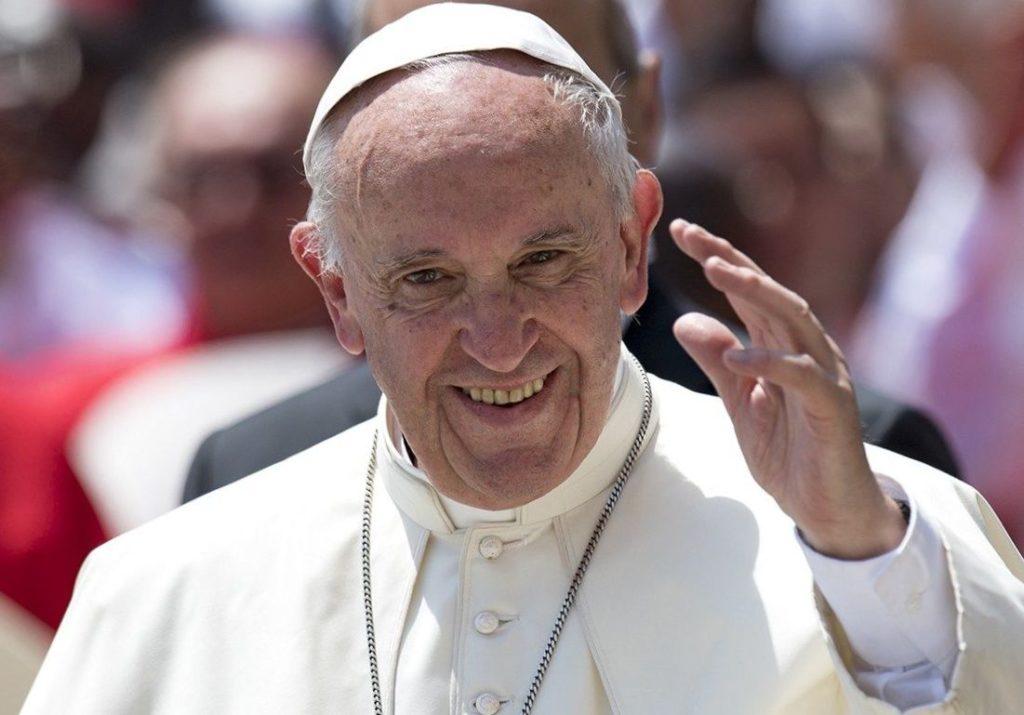
“It is work that gives dignity,” Pope Francis said in a video message to a meeting in Argentina. “Those who do not have work feel that something is missing, that they lack the dignity that work gives; work anoints with dignity.
“Several times I have referred to the noble vocation of the businessperson who seeks creatively to produce wealth and diversify production, while at the same time making it possible to create jobs. Because I will never tire of referring to the dignity of work.”
The message was sent to the participants in the 57th Colloquium of the IDEA Foundation, the Istituto para el Desarrollo
Empresarial de la Argentina, held in Buenos Aires at the Costa Salguero Center, from October 13-15, 2021, on the theme “Achieving a sustainable Argentina.”
IDEA is an organization made up of more than 400 of the largest companies in Argentina to organize collective bargaining between the employer sector and the unions and the government. Amongst its objectives is to exchange experiences in best business practices and to be protagonists of economic, political, and social work. The Union of Popular Economy represents informal and self-employed workers.
Here is the working translation of the video message, provided by the Vatican:
I would like to welcome the space for dialogue that you, the Idea Foundation, and the Union of Workers in the Popular Economy have proposed. I sincerely hope it will be a moment of genuine exchange that can bring together the innovative contribution of entrepreneurs and workers who are fighting for their dignity and for their families.
Several times I have referred to the noble vocation of the businessperson who seeks creatively to produce wealth and diversify production, while at the same time making it possible to create jobs.
Because I will never tire of referring to the dignity of work. It is work that gives dignity. Those who do not have work feel that something is missing, that they lack the dignity that work gives; work anoints with dignity.
Some have implied I say things that I do not support: that I propose a life without effort or that I despise the culture of work. Think about whether you can say that about a descendant of Piedmontese people, who did not come to our country with the intention of being supported, but with a great desire to set to work, to build a future for their family. Interestingly, they didn’t put their money in the bank, the migrants, but in bricks and soil. The house, first of all. They were looking ahead for the family. Family investments.
Il lavoro esprime e alimenta la dignità dell’essere umano, gli consente di sviluppare le capacità che Dio gli ha donato, lo aiuta a tessere relazioni d scambio e di aiuto reciproci, gli permette di sentirsi collaboratore di Dio per prendersi cura di questo mondo e svilupparlo, lo fa sentire utile alla società e solidale con i suoi cari. Per questo il lavoro, al di là della fatica e delle difficoltà, è il cammino di maturazione, di realizzazione della persona, che mette le ali a sogni migliori.
Work expresses and nourishes the dignity of the human being, it allows him to develop his God-given capacities, it helps him to weave relationships of exchange and mutual help, it allows him to feel that he is God’s collaborator in taking care of this world and developing it, it makes him feel useful to society and in solidarity with his loved ones. For this reason, work, despite fatigue and difficulties, is the path to maturity, to personal fulfillment, which gives wings to better dreams.
It is therefore clear that subsidies can only be a temporary help. We cannot live on subsidies, because the great objective is to offer diversified sources of work that enable each person to build a future through effort and ingenuity. Insofar as they are diversified, they open the way for different people to find the most appropriate context for developing their gifts, since not everyone has the same abilities and predispositions.
Along this path, I believe that dialogue between entrepreneurs and workers is not only indispensable but also fruitful and promising. Thank you for this conversation, which has such a noble purpose.
May God bless you and please do not forget to pray for me. Thank you.
© Libreria Editrice Vatican
Related
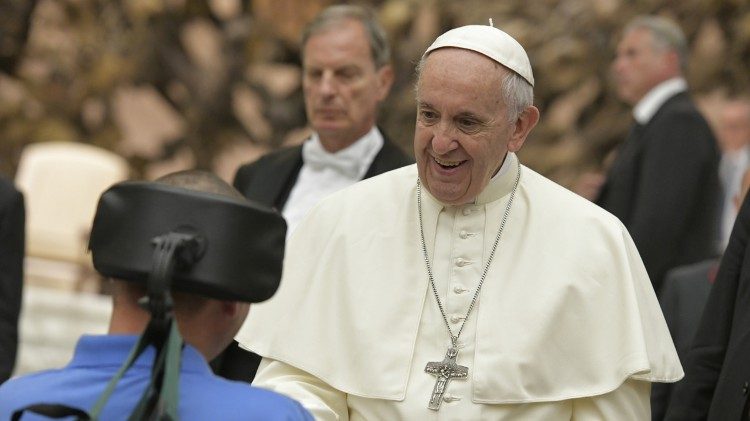
Francis. The Human and Religious Imprint of a Papacy
Isabel Orellana
24 April, 2025
5 min
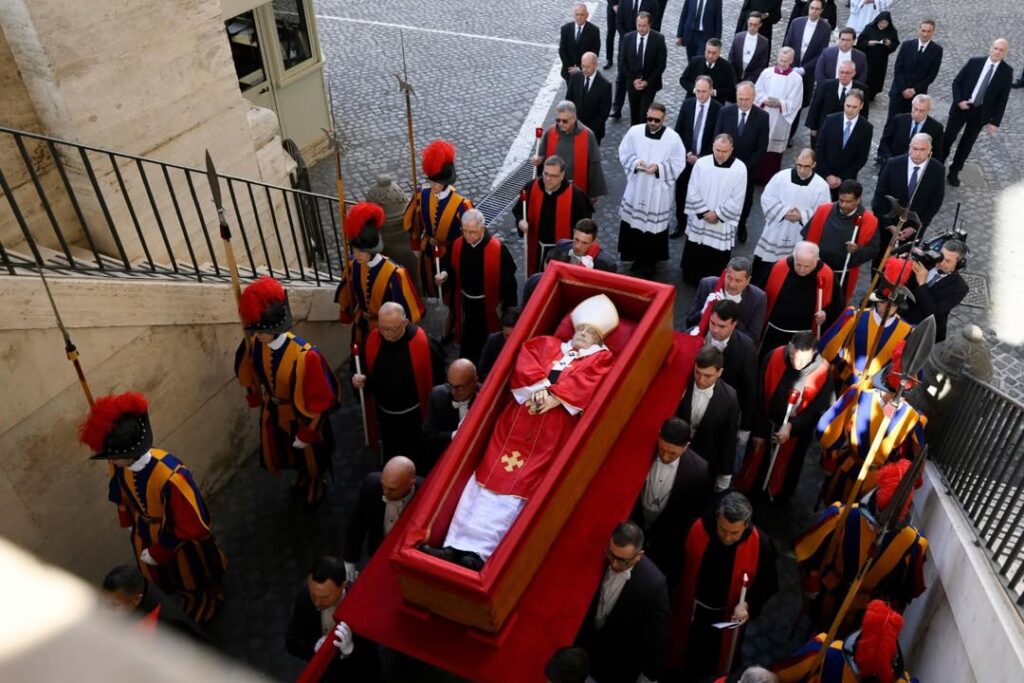
A Pope’s Last Journey: Francis’ Body Transferred to St. Peter’s
Exaudi Staff
24 April, 2025
3 min
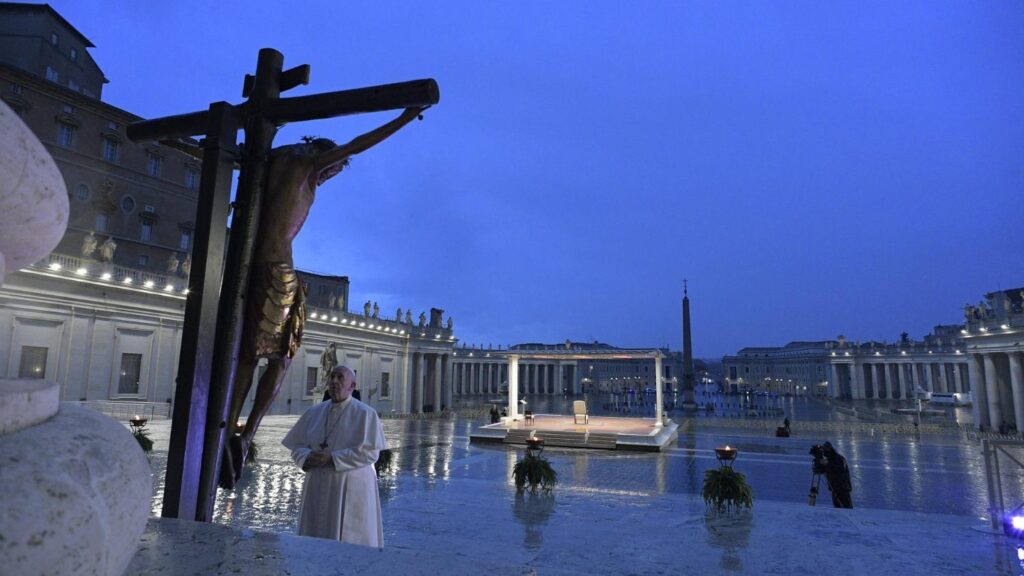
Cardinal Felipe Arizmendi: With the Risen Christ, There Is Hope
Felipe Arizmendi
24 April, 2025
6 min
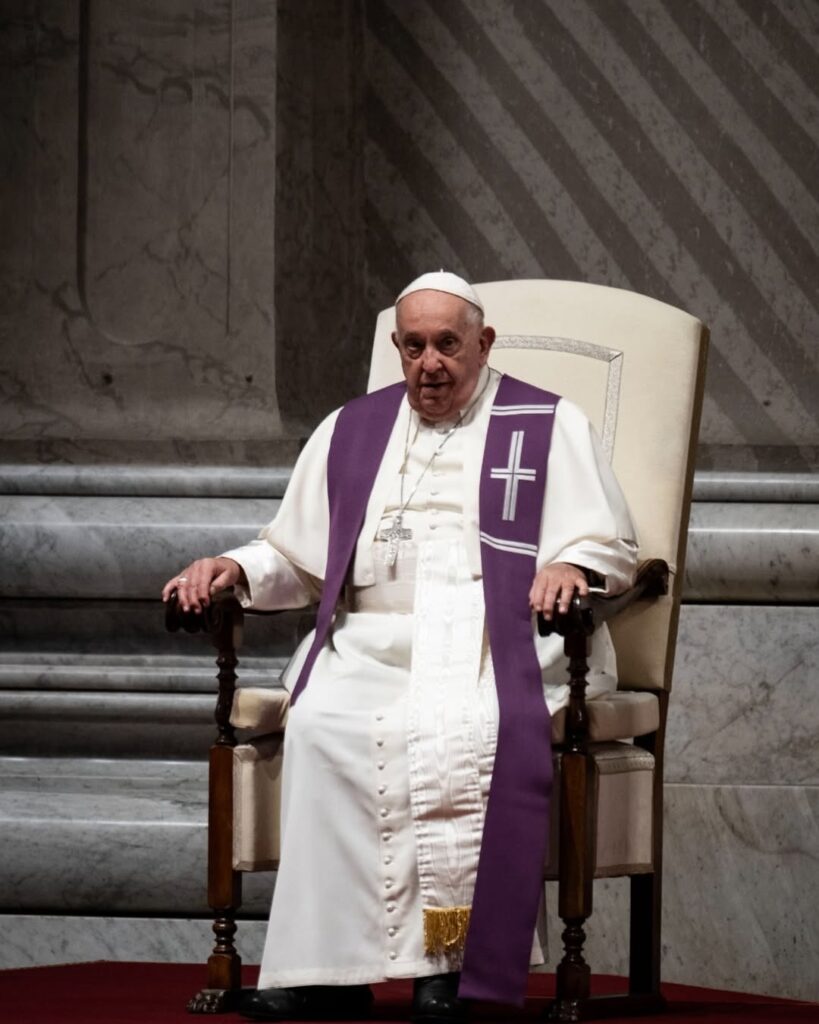
You Didn’t Give Up
Exaudi Staff
23 April, 2025
2 min
 (EN)
(EN)
 (ES)
(ES)
 (IT)
(IT)

